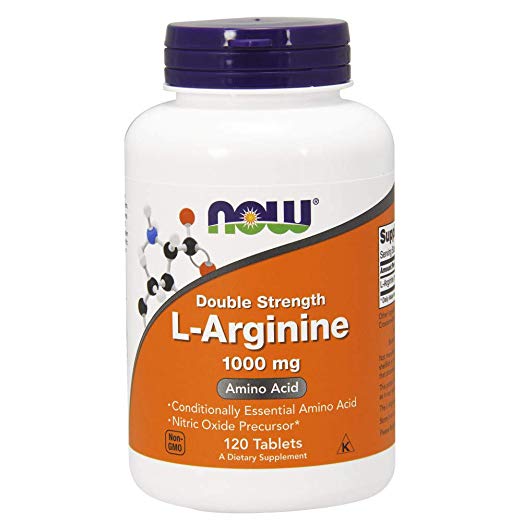Bodybuilding, Powerlifting, Supplements, and Equipment Super Store!

L-arginine is a protein amino acid present in the proteins of all life forms. It is classified as a semi-essential or conditionally essential amino acid. This means that under normal circumstances the body can synthesize sufficient L-arginine to meet physiological demands. There are, however, conditions where the body cannot. L-arginine is essential for young children and for those with certain rare genetic disorders in which synthesis of the amino acid is impaired. Some stress conditions that put an increased demand on the body for the synthesis of L-arginine include trauma (including surgical trauma), sepsis and burns. Under these conditions, L-arginine becomes essential, and it is then very important to ensure adequate dietary intake of the amino acid to meet the increased physiological demands created by these situations.
L-arginine, even when it is not an essential amino acid as defined above, is a vital one. In addition to participating in protein synthesis, it plays a number of other roles in the body. These include the detoxification of ammonia formed during the nitrogen catabolism of amino acids via the formation of urea. In addition, L-arginine is a precursor in the formation of nitric oxide, creatine, polyamines, L-glutamate, L-proline, agmatin (a possible neurotransmitter in the brain) and the arginine-containing tetrapeptide tuftsin, believed to be an immunomodulator. L-arginine is a glycogenic amino acid; it can be converted to D-glucose and glycogen if needed by the body or it can be catabolized to produce biological energy.
L-arginine, when administered in high doses, stimulates pituitary release of growth hormone and prolactin and pancreatic release of glucagon and insulin. Intravenous L-arginine may be used as an aid in the evaluation of problems with growth and stature that may be due to growth hormone deficiency. Intravenous arginine hydrochloride may be used as a fourth-line agent in the treatment of severe metabolic alkalosis. L-arginine is also used as an immunonutrient in enteral and parenteral nutrition to help improve the immune status in those suffering from sepsis, burns and trauma.
L-arginine, when administered in high doses, stimulates pituitary release of growth hormone and prolactin and pancreatic release of glucagon and insulin. Intravenous L-arginine may be used as an aid in the evaluation of problems with growth and stature that may be due to growth hormone deficiency.
The typical dietary intake of L-arginine is 3.5 to 5 grams daily for athletic use. Various doses are used. For cardiovascular health reasons, doses from 8 to 21 grams daily have been used in divided doses. To help aid with sperm quantity and quality, doses of 10 to 20 grams daily have been used in divided doses. Doses of 5 grams daily have been used for erectile dysfunction. Doses of 1.5 to 2.4 grams daily have been used for interstitial cystitis.
Realted Pages:Pure L-Arginine Products
Other L-Arginine Products